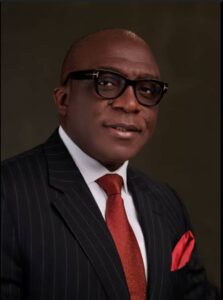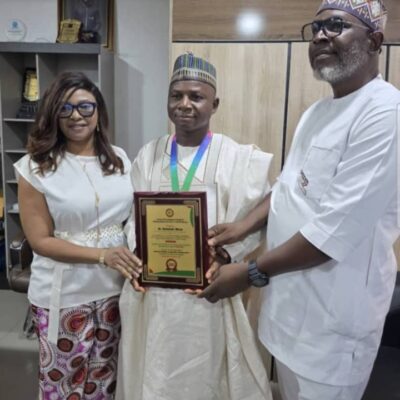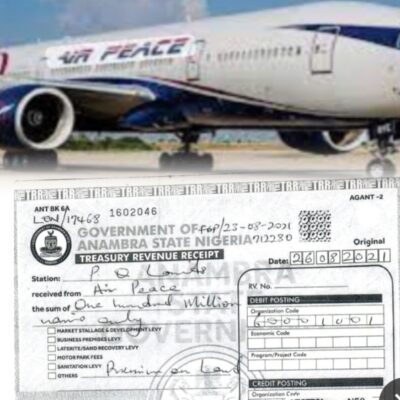
BY OLAPEJU OLUBI
Airline Operators of Nigeria (AON), the umbrella body of the domestic operators in the country, has raised the alarm that its members are literally living on ventilators, and may shut down operations if help does not come quickly.
AON in a statement signed by its Spokesman, Professor Obiora Okonkwo, described the operators’ predicament as an ‘existential threat’, saying they are battling hydra-headed challenges ranging from scarcity of foreign exchange, high price of aviation fuel and the difficulty in acquiring aircraft due to country risk.
According to AON, the operators’ airplanes due for the mandatory C-check are currently grounded as there is no forex to buoy the expensive overseas maintenance.
With the worrisome development, domestic operators are contending with continuous depletion of equipment without replenishment and the AON has warned that if the trend continues, the country may not have operating aircraft for domestic services.
As a panacea, Okonkwo said airlines need urgent government lifelines without which many airlines would vacate the skies and the government would be their undertaker.
He further explained that the lack of stability in foreign exchange and the soaring price of aviation fuel, which now sells for N1,300 per litre, have eroded their ability to plan; created uncertainty and precariousness in their operations.
Professor Okonkwo, who is also the Chairman of United Nigeria Airlines, explained that travellers who bought forward tickets in 2023 when aviation fuel was N700 per litre and exchange rate was N800/$1 would be airlifted at the current price of aviation, N1,300 per litre and exchange rate of N1400/$1; so, the airlines are recording huge losses on those tickets.
“We are making losses on factors that are beyond our control. We are not only faced with the problem of scarcity of dollars; even the aviation ecosystem is feeling the heat. Handling companies have increased the cost of their services, airports have increased their charges and those that service the aircraft have also increased the cost of their services. The monies for these payments are coming from the passengers who are already exhausted financially,” he said.
Okonkwo added that many businesses in Nigeria are making poor returns so those entrepreneurs who are the crux of passengers that travel during the high and low season are no more travelling and those who travel on tourism and social engagement are not enough to provide airlines good load factor to sustain their operations at the current low season.
“Passenger traffic has shrunk because even those on social engagement like weddings, burials and other ceremonies may not be inclined to spend money on flight tickets; they would rather send credit alert to those hosting the events who would appreciate such gestures. So, they pay instead of appearing in person,” he said.
Okonkwo noted that the airlines want to engage with the government to see how the government can intervene to save the airlines, noting that presently the government may not understand how perilous the situation is to airlines.
“Air travel is a catalyst to economic development. There should have been government engagement with airlines at different levels. Airlines do not have special forex allocation; so, they buy at the same place traders who trade Brazilian hair, textiles and others buy. Our passion to remain in this business is being eroded. We are at the point of oxygen supply. Some airlines are going into a coma. Our equipment is diminishing. The minimal revenues we earn to keep the airlines flying, we convert to pay our lessors.
“It is impossible to bring in more aircraft. Aircraft owners have become skeptical because of country risk. A Nigerian airline may meet their terms, all the standard criteria but the aircraft owners consider country risk above other factors. Country risk supersedes everything and lessors have their own obligations. So, there is nothing personal. Some airlines deposited money with the Central Bank of Nigeria (CBN) but they cannot provide us the needed dollars,” Okonkwo explained.
He also noted that there are fixed costs which airlines must pay whether they fly empty or with passengers, noting that even if an airline borrows money to support the current downturn, the interest rate is still at 26 per cent, reiterating that airlines need special allocation of dollars for them to survive because airlines need dollars to buy aircraft, maintain their fleet and order spares.





